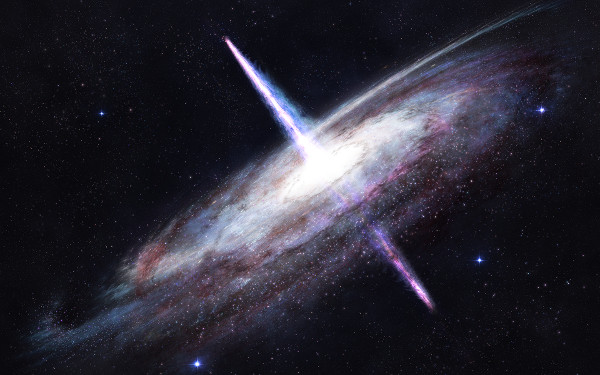In fact, some black holes have a concentrated brightness that exceeds all of the stars around them, which can be clearly seen in Hubble Telescope images.
What makes black holes glow?
A black hole is a region of space-time where a gravitational field prevents everything, including light, from escaping. It is described as “black” because it is capable of absorbing all radiation and all material sucked through the event horizon, like an absolute black body in thermodynamics; neither is it a kind of “hole” or “hole” but a region of space-time which does not allow anything to escape.
The fact that some black holes focused the brightness beyond all the stars around them can be clearly seen in the Hubble Telescope images, so why “Can’t he just let the escaping light shine like that? ” Join us to find out.
When matter shrinks into a space so small that it essentially becomes a point, a “formal” black hole occurs. A black hole’s event horizon is the point at which not everything that falls can come out. Even the light is captured and dragged into the center of the black hole, so that the entire universe becomes dark in this region of space.
Many scientists infer the existence of a black hole by examining the gravitational pull of nearby stars, but they cannot look for the movement of all stars everywhere. In some cases, the best way to find a black hole is to look for areas of bright light. Indeed, when scientists see an extremely bright spot in a relatively small region of space, one of their first thoughts is that they are looking at a black hole.

Matter falling into the black hole forms an accretion zone, where matter collides with each other, becoming a plasma state that emits intense radiation; making the environment surrounding black holes one of the brightest objects in the universe. And since so much matter can orbit a black hole, there’s a lot of fuel to keep it shining. However, black holes do not glow forever. Eventually they will turn dark, then they will grow taller. But why does the black hole itself emit light and not just around it?
The phenomenon of light emanating from the black hole has been shown to be an inverse case of the Compton effect, a work of physicist Arthur Compton which won him the 1927 Nobel Prize in Physics. Photons are abundant in the universe and their energies are slightly lower than the visible spectrum, but if the photons are close to a black hole, they will collide with particles of matter (eg electrons) present in the accretion region of the black hole. The energy of the electron then passes through the photon and pushes their energy levels into the visible spectrum.


